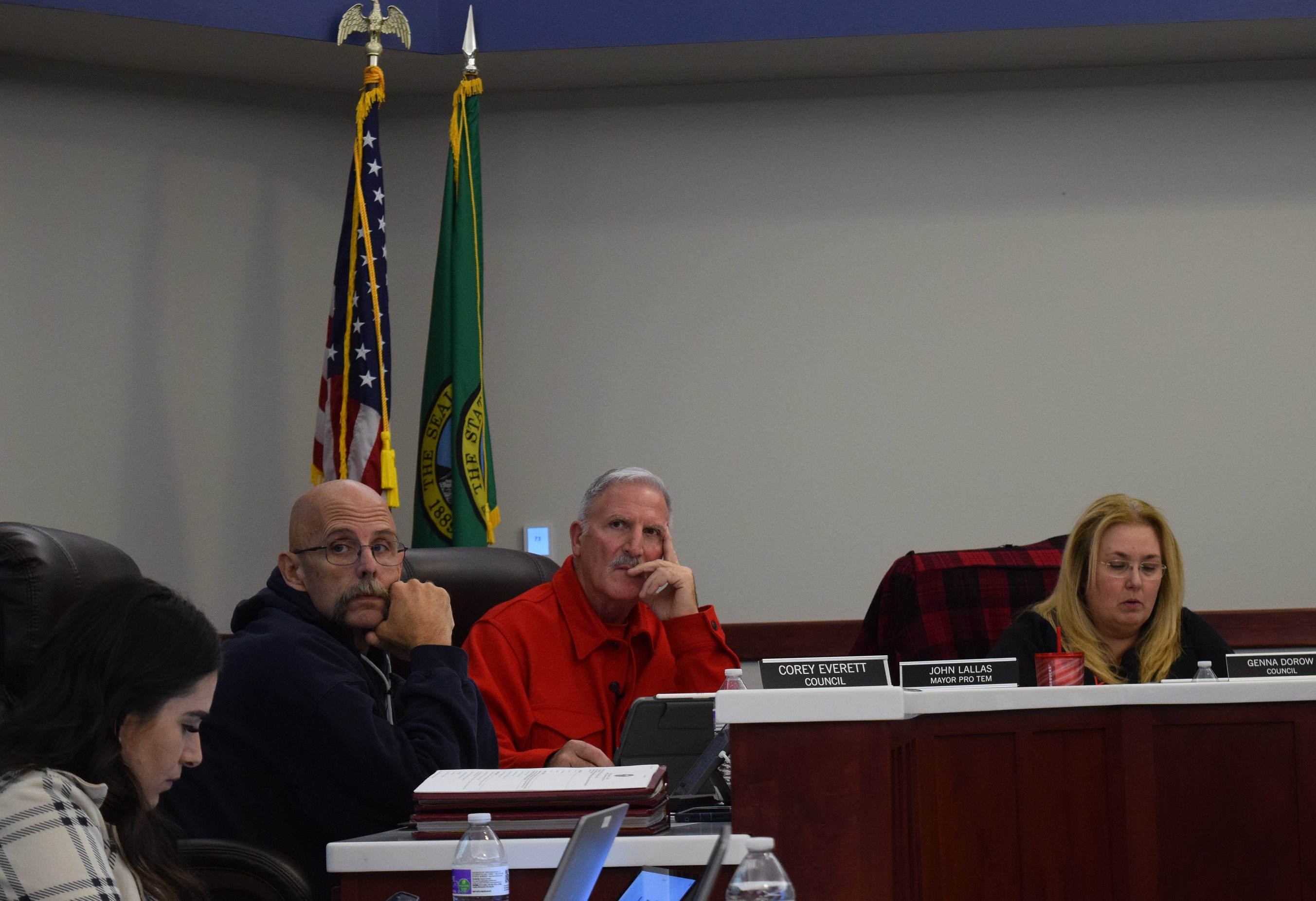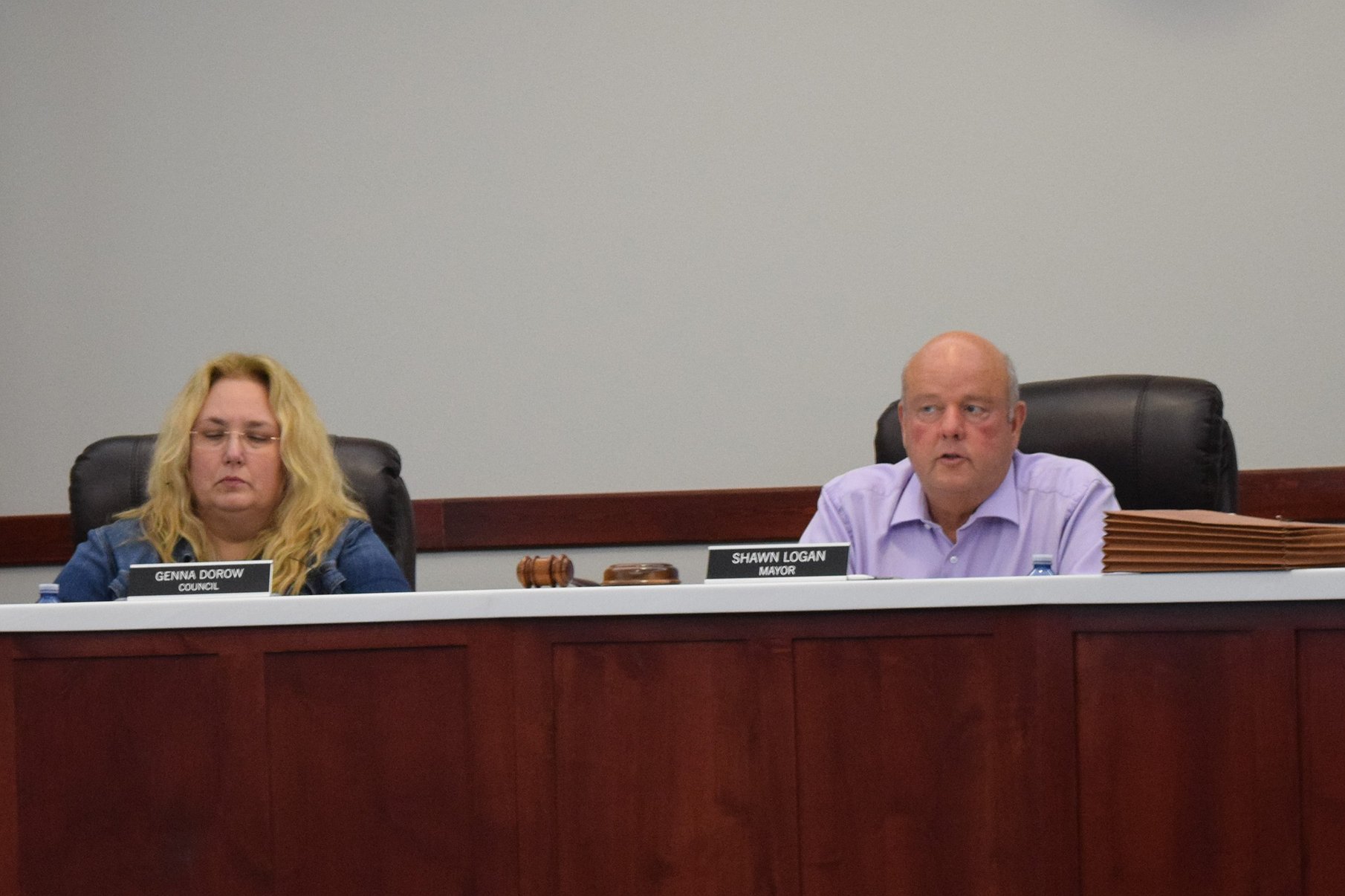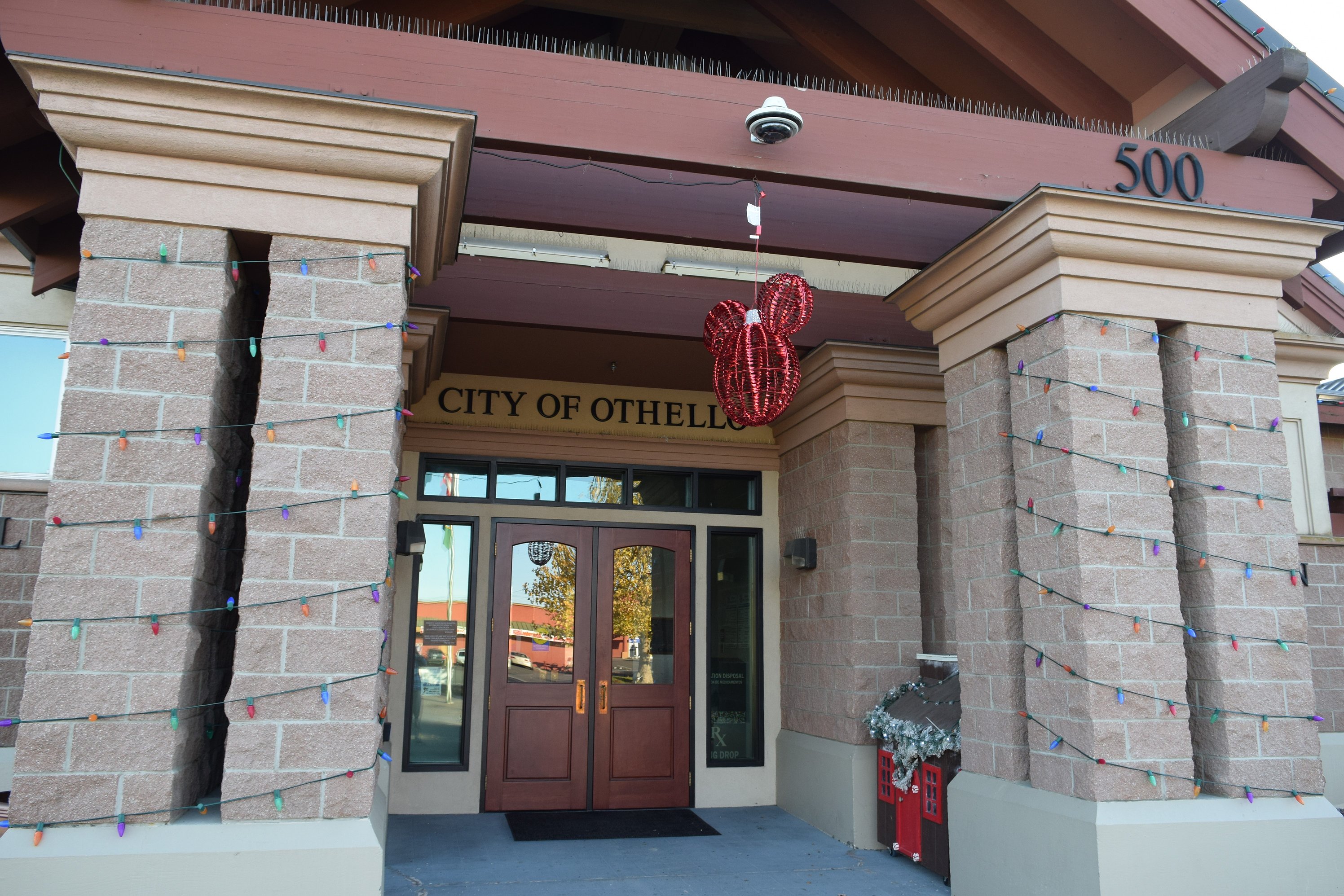Othello council discusses ACPR during final budget workshop
GABRIEL DAVIS | Hagadone News Network | UPDATED 1 year, 1 month AGO
Gabriel Davis is a resident of Othello who enjoys the connections with his sources. Davis is a graduate of Northwest Nazarene University where he studied English and creative writing. During his free time, he enjoys reading, TV, movies and games – anything with a good story, though he has a preference for science fiction and crime. He covers the communities on the south end of Grant County and in Adams County. | December 1, 2023 1:20 AM
OTHELLO — Monday’s final budget workshop during the Othello City Council meeting led to a discussion around Adams County Pet Rescue and progress regarding its contract negotiations with the city.
Mayor Shawn Logan started the discussion by suggesting the council add $50,000 to the general fund as a placeholder in case contract negotiations with ACPR result in the city — specifically the Othello Police Department — taking over a portion of dog pick-ups, which Logan said is a possibility of the negotiations.
The preliminary budget still reflects an additional $50,000 for ACPR on top of the $52,000 the city already pays for the ACPR contract. The amount will not be finalized until the contract is formalized, at which point the city council would have to approve the contract regardless of what they budget for it.
In a letter to the city, ACPR requested that the city put $150,000 toward the shelter.
“They're asking for us to fund their total budget, basically,” Council member John Lallas said.
Lallas asked Logan if ACPR was willing to change its status to a kill shelter, to which Logan responded that he thinks it is not an option for the agency.
“We have to consider what the costs are associated with saving all these animals,” Lallas said.
Council member Angel Garza also commented on the subject.
“If there are going to be more dogs out there, how many are we going to save and what’s that going to cost us?” Garza said. “Are we going to be paying $150,000 to $200,000 in a couple of years?”
Logan then asked Police Chief Dave Rehaume to explain the progress of his and Logan’s ongoing conversations with ACPR.
“The paradigm between shelter and animal control is a confusing mix, so what we're talking about now is separating the two a little bit,” Rehaume said. “A couple of things we want to focus on are owner responsibilities. That would include proper licensing, proper shots, proper care, proper control, which would include proactive animal control.”
Rehaume said the city would utilize Othello’s court system for licensing and tickets.
“We've also had very candid conversations regarding the idea of just keeping animals forever out there, that that’s not a good business model and it’s just not going to work,” he said. “They understand that. They just have a concern about how things are handled within each other’s lane of influence.”
The negotiations have not led to any definitive dollar amounts, Rehaume said.
“We found at the end of today's meeting that we're not that far apart on what we think it should be, where owners should be more responsible for their animals,” he said. “How to get them there is the discussion, and that's what we've been working on a lot today. I thought today's meeting was one of the best meetings we’ve had, and they keep getting better and better. We're not that far away from a conclusion. It’s just going to take a little bit more time.”
Logan said that regardless of if the city takes over a portion of animal control, the community still needs a place to take dogs.
“This issue is far more complex, there's far more to it than I think I probably even wanted to know,” Logan said, “but if I'm going to do a good job for the city, and if Dave is going to do a good job for the city, we have to get ourselves into the nitty-gritty of what it is they exactly do and how they care for these animals and then what can we reasonably afford and at what level are we going to fund it?”
Logan warned of not funding ACPR enough.
“You always have the opportunity to say, ‘Okay, well, we're just going to fund it at this level, and that's all we're going to do,’” he said. “That, from a pure business standpoint, sounds really good, except that what you're doing if you don't fund it enough — and I don't know yet today what enough means — but if you don't fund it enough, it's going to fold, and if it folds, it doesn't remove our responsibility to do animal control.”
Council member Mark Snyder commented on the budget’s additional $50,000 for ACPR.
“It still doesn't make sense to me that we were paying them $50,000 and they were doing animal control and (sheltering) animals,” Snyder said. “Now, we're going to do the animal control and we're going to give them $100,000 for doing less.”
Council member Corey Everett said that ACPR did not perform the animal control services they were supposed to based on the original contract.
“They have picked up 198 or 199 dogs this year so far, so you can’t say they didn’t do any,” Logan said.
The issue will need more discussion with the council and with ACPR as the contract negotiations continue, Logan said.
“There's an excess amount of animals in the community, and in the county, and this facility is not large enough to handle all of them,” he said. “So, they’re managing the best way they know how and trying to do the best thing that they do.”
The council decided to greenlight the $50,000 placeholder for additional ACPR funding and the $50,000 placeholder for the OPD if it ends up taking over some or all of animal control services.
Gabriel Davis may be reached at gdavis@columbiabasinherald.com. Download the Columbia Basin Herald app on iOS and Android.
ARTICLES BY GABRIEL DAVIS

Work-based learning lets students build their own futures
MOSES LAKE — Work-based learning provides education opportunities for the workforce to receive hands-on training and technical education and prepare themselves to enter various industries. Educators and workforce development professionals from Eastern Washington discussed some the training they offer and the benefits of their programs. Next Generation Zone, an affiliate of WorkSource based in Spokane, provides job training opportunities for youth and young adults ages 16 to 24. Program Coordinator Kate Martin said there are multiple benefits to the program. “One of them is a paid work experience, and that’s where we reach out to area employers who are willing to take a young person and train them,” she said. “This is a short-term learning experience, so it’s typically about 240 hours; sometimes it could be longer or shorter. We’re the actual employer; we cover all of their wages, taxes, the L&I, and the employer just agrees to give them the experience and train them in whatever field it is that they’re wanting to go into.”

Serving schools: ESD superintendents reflect on operations, priorities
MOSES LAKE — Educational service districts are government-mandated agencies put in place to provide services to school districts across the state. ESD Superintendents discussed what they do and their priorities in operating their districts. ESD 105, led by Superintendent Kevin Chase, serves four counties, including Kittitas, Yakima and portions of Klickitat and Grant counties and provides support for 25 school districts – including Royal School District and Wahluke School District – and more than 66,000 students. “We help them collaborate with each other as well or collaborate with other partners,” Chase said. “(It’s) a lot of advocacy work, either regionally or across the state, or even federally, working on different issues that impact our education. And we provide very specialized services in certain situations in order to meet the needs of our students in our region and of our school districts.”

Columbia Basin Project making headway through Odessa Groundwater program
CASHMERE — The Columbia Basin Project is making gradual progress toward completion with particularly significant accomplishments for the Odessa Groundwater Replacement Program in the last six months or so, according to Columbia Basin Development League Executive Director Sara Higgins. “When we’re dealing with a project of this size, advancement is kind of like watching paint dry, but yes, there have been (developments),” she said. “There are a lot of exciting things happening right now.” There are more than 300 miles of main canals, about 2,000 miles of lateral canals and 3,500 miles of drains and wasteways in the irrigation project, according to the U.S. Bureau of Reclamation website. The CBDL advocates for the operation of those waterways and for the project to continue “build-out.”










